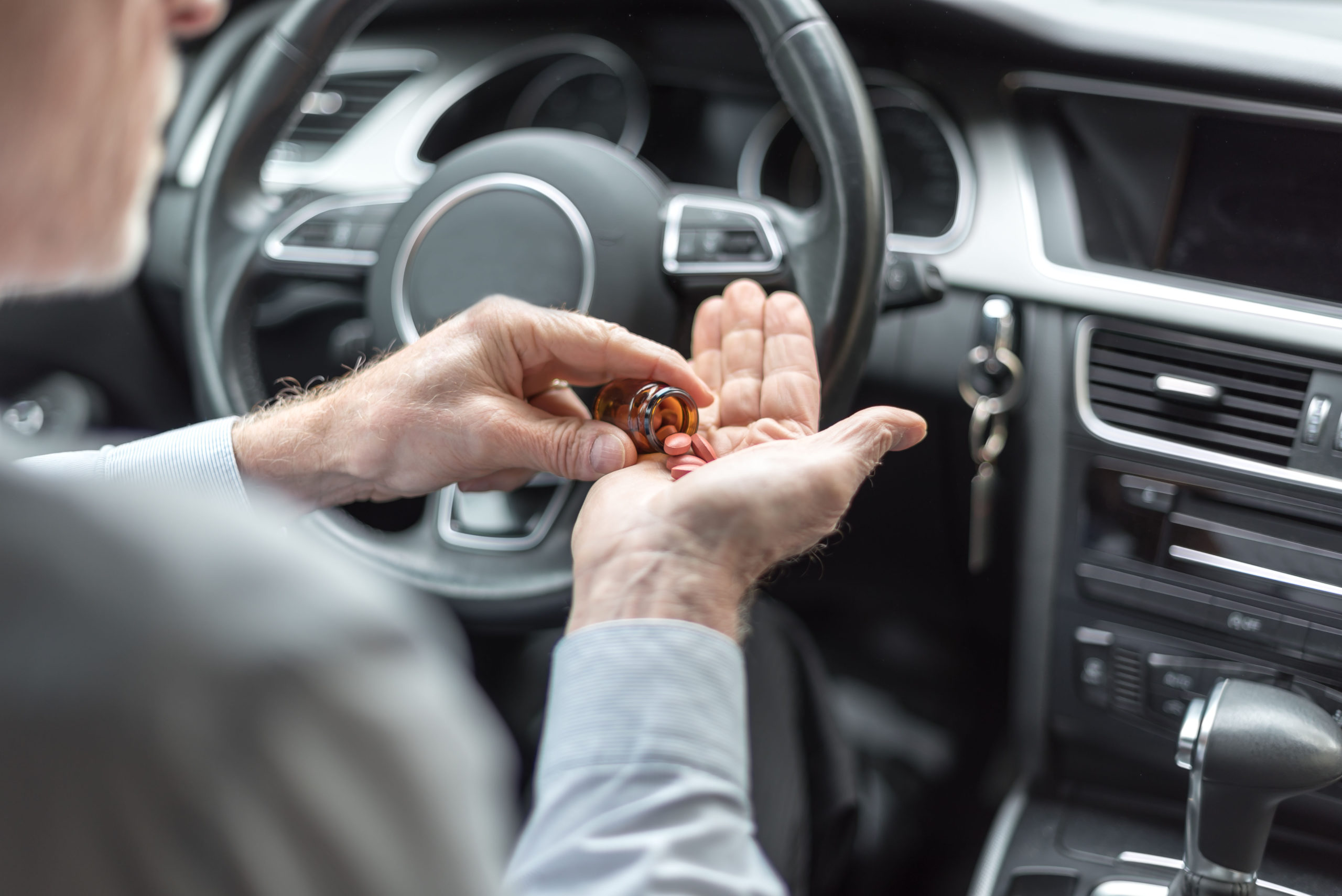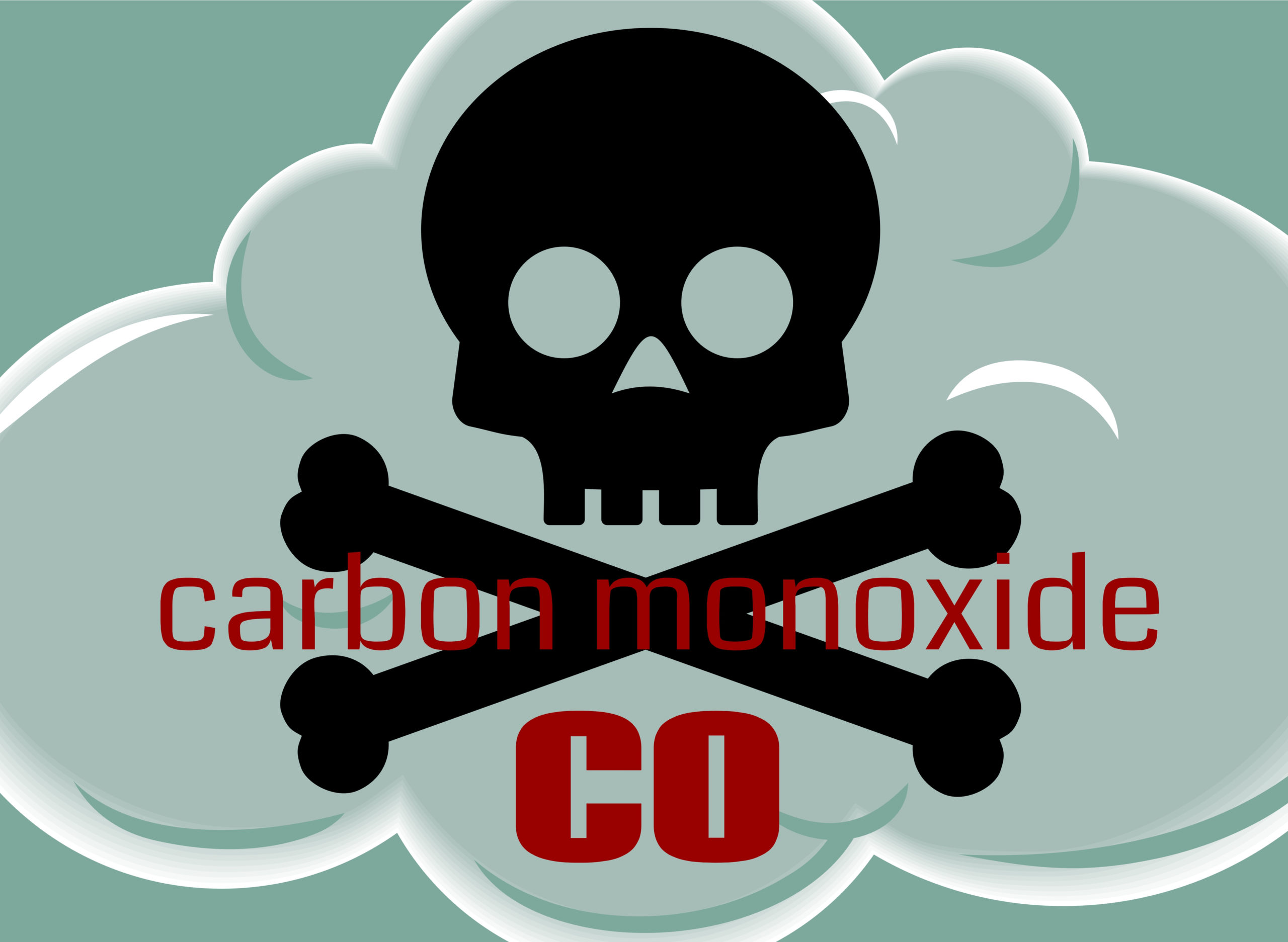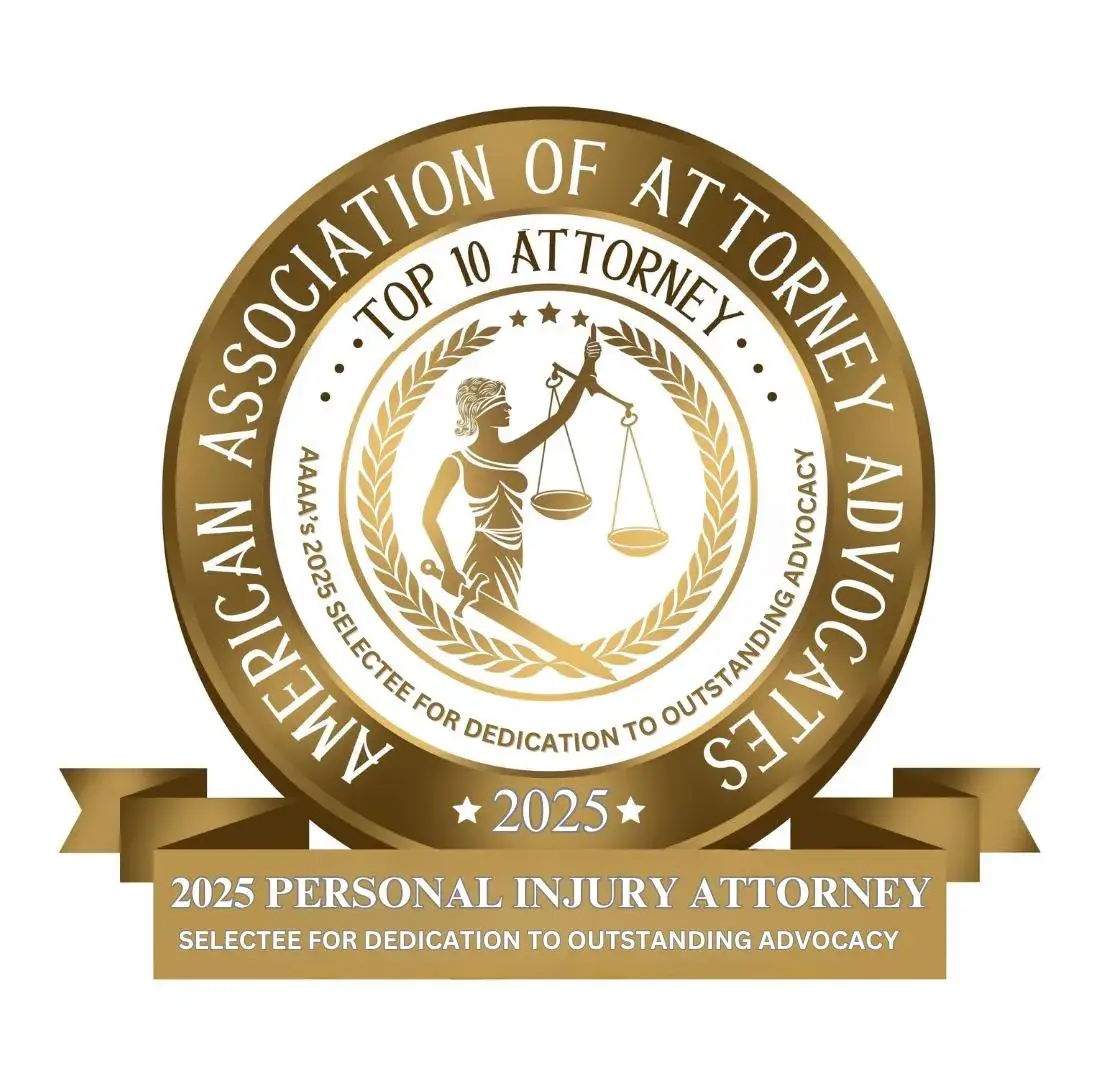
Hit by a Drugged Driver in New Jersey? Here’s What Happens Next.
If you were injured by a driver you suspect was impaired by drugs, you should know that your case is different. It’s not as straightforward as an accident involving alcohol, where a simple breathalyzer test can tell a large part of the story.
Proving a driver was impaired by prescription medication, over-the-counter drugs, or illegal substances requires a specific approach to gathering evidence. The type of drug, how it was consumed, and the driver’s own medical history all become central to your claim. The goal is to secure compensation for your medical treatments, the income you have lost, and the pain this has caused.
Need personalized advice for your unique situation? For a no-cost discussion about your situation, call our New Jersey drunk driver accident lawyers team at Maggiano, DiGirolamo & Lizzi, P.C. at (201) 585-9111.
Table of contents
- A Growing Danger on Our Roads
- What Does “Drugged Driving” Mean Under New Jersey Law?
- Different Drug Categories: How Each Type Affects Your Legal Case
- Expanding Liability: Holding All Responsible Parties Accountable
- The Challenge: How Is Drug Impairment Actually Proven?
- Your Civil Claim vs. The Driver’s Criminal Case
- What Compensation Can You Pursue?
- Frequently Asked Questions About Drugged Driving Accidents
- Let Us Worry About the Details. You Focus on Getting Better.
A Growing Danger on Our Roads
In recent years, traffic fatalities involving impaired drivers have remained alarmingly high. Nationally, more than 11.7 million people admitted to driving under the influence of illicit drugs in a single year. The use of prescription drugs, like opioids and benzodiazepines, is a significant factor in serious crashes across New Jersey.
What Does “Drugged Driving” Mean Under New Jersey Law?
New Jersey law (N.J.S.A. 39:4-50) does not distinguish between impairment from alcohol or drugs. Driving While Intoxicated (DWI) includes being under the influence of any narcotic, hallucinogenic, or habit-producing drug.
The key is whether the substance affects the judgment or control of the person as to make it unsafe for him to drive. This means even a legally prescribed medication, if it impairs your ability to operate a vehicle safely, may lead to a DWI charge and civil liability for a crash.
Unlike alcohol’s .08% Blood Alcohol Concentration (BAC) limit, New Jersey does not have a specific limit for most drugs. This makes the evidence of actual impairment even more important in these cases.
Different Drug Categories: How Each Type Affects Your Legal Case
The type of drug involved in your accident significantly impacts both the evidence available and the legal strategies needed to prove your case. Each category of substance creates unique challenges and opportunities in building your claim for maximum compensation.
Prescription Opioids: The Therapeutic Level Defense
Opioid-impaired driving cases often involve complex medical evidence that insurance companies exploit to deny claims. Medications like OxyContin, Percocet, and fentanyl patches can cause severe impairment even at prescribed dosages, but defense attorneys routinely argue that “therapeutic levels” couldn’t cause impairment. We counter this by examining:
- Tolerance levels: Long-term users may have higher blood concentrations while appearing functional
- Drug interactions: Combining opioids with other medications can create dangerous impairment
- Timing evidence: When the last dose was taken relative to the crash
- Doctor shopping patterns: Multiple prescriptions from different physicians indicating abuse
Benzodiazepines: The Memory Impairment Challenge
Benzodiazepines like Xanax, Valium, and Ativan create unique evidentiary challenges because they can cause memory blackouts that complicate witness testimony. These medications are among the most dangerous for driving because they impair judgment while making users feel more confident. Key factors we investigate include:
- Alcohol combination: Even small amounts of alcohol dramatically increase benzodiazepine impairment
- Blackout periods: Driver may not remember taking additional pills or drinking
- Prescription compliance: Whether the driver was following prescribed dosages
- Cognitive testing results: Field sobriety tests are particularly revealing for benzodiazepine impairment
Benzodiazepine impairment typically produces clear physical evidence like slurred speech, confusion, and poor coordination that police officers document extensively, creating strong liability evidence.
Marijuana and Cannabis Products
Cannabis impairment cases have become increasingly complex since New Jersey legalized recreational marijuana, but impaired driving remains illegal and fully prosecutable. We focus on evidence that proves actual impairment at the time of the crash:
- Active THC vs. metabolites: Blood tests showing active THC indicate recent use and likely impairment
- Driving pattern evidence: Cannabis typically causes delayed reactions and difficulty maintaining lane position
- Medical marijuana defenses: Legal use doesn’t excuse impaired driving under N.J.S.A. 39:4-50
- Combination with alcohol: Even legal THC levels become dangerous when combined with any alcohol
Stimulants: From Prescription Adderall to Illegal Cocaine
Whether prescription stimulants like Adderall or illegal drugs like cocaine, these substances cause aggressive driving, excessive speed, and poor decision-making. Evidence patterns include:
- Aggressive driving behavior: Tailgating, road rage, excessive speeding before the crash
- Prescription abuse: Taking more than prescribed amounts or combining with other stimulants
- Crash severity: Stimulant-impaired drivers often crash at high speeds, causing catastrophic injuries
- Physical evidence: Dilated pupils, rapid speech, agitation noted by police
Over-the-Counter Medications
Insurance companies often minimize cases involving over-the-counter medications, but substances like Benadryl, Nyquil, and codeine cough syrups can cause severe impairment.
These cases require specialized handling because:
- Public perception: Juries may not understand how “harmless” medications can impair driving
- Dosage issues: Taking more than recommended amounts is common but not well-documented
- Combination effects: Multiple OTC medications can create unexpected impairment
- Warning label evidence: Manufacturers’ own warnings about driving impairment support your case
Expanding Liability: Holding All Responsible Parties Accountable
Drugged driving accidents sometimes involve multiple parties whose negligence contributed to the crash. Identifying all liable parties will help maximize your compensation.
Prescribing Physicians: When Medical Professionals Enable Dangerous Driving
Doctors who overprescribe or fail to warn patients about driving risks could be held liable for accidents caused by their patients. Under New Jersey law, physicians have a duty to properly monitor prescription drug use and warn about impairment risks. We investigate:
- Overprescribing patterns: Multiple high-dose prescriptions without adequate monitoring
- Inadequate warnings: Failure to specifically discuss driving impairment risks
- Drug interaction negligence: Prescribing combinations known to cause severe impairment
- Patient history ignored: Continuing dangerous prescriptions despite known abuse patterns
Pharmacies: Dispensing Errors and Counseling Failures
Pharmacies have legal obligations to provide accurate medications and counsel patients about impairment risks that, when violated, create liability for resulting accidents. Common pharmacy negligence includes:
- Dispensing errors: Wrong medication or dosage that creates unexpected impairment
- Failure to counsel: Not warning about driving risks or drug interactions
- Ignoring red flags: Filling obviously dangerous prescription combinations
- Early refill patterns: Allowing suspicious refill patterns without questioning
Employers: Workplace Responsibility for Impaired Commercial Drivers
Companies that allow employees to drive while impaired or fail to properly monitor commercial drivers face significant liability under New Jersey employment law. Employer liability extends beyond just trucking companies to include:
- Inadequate drug testing: Failing to conduct required or reasonable drug screening
- Ignoring impairment signs: Allowing obviously impaired employees to drive company vehicles
- Prescription drug policies: Lack of policies addressing employee prescription drug use
- Commercial driver oversight: Failing to monitor CDL holders’ medical fitness
Social Hosts and Drug Providers: Liability for Supplying Dangerous Substances
Individuals who provide prescription medications to others or host gatherings where drug use occurs can face civil liability for resulting accidents. New Jersey recognizes social host liability in various contexts:
- Prescription sharing: Giving or selling prescription medications to others
- Party host liability: Allowing drug use at private gatherings when guests then drive
- Family member responsibility: Parents or spouses who enable prescription drug abuse
- Workplace drug sharing: Employees sharing prescription medications with coworkers
Drug Manufacturers: Inadequate Warnings and Dangerous Products
Pharmaceutical companies could be held liable when inadequate warnings about driving impairment contribute to accidents. Product liability claims against drug manufacturers focus on:
- Warning inadequacy: Labels that don’t adequately communicate driving risks
- Marketing practices: Promoting drugs without sufficient impairment warnings
- Known risks concealed: Failing to disclose known driving safety issues
- Defective design: Medications that cause more impairment than necessary
The Challenge: How Is Drug Impairment Actually Proven?
There is no universal, simple roadside test for drug impairment. This is the central challenge. Proving a case relies on piecing together different forms of evidence.
The officer’s observations from the Police Report are the starting point. We look for notes on:
- The driver’s physical appearance (e.g., pupil size, red eyes).
- The driver’s speech and coordination.
- Any admission of drug use.
- The presence of drugs or paraphernalia in the vehicle.
Drug Recognition Experts (DREs)
Some officers have specialized training to identify impairment from specific categories of drugs through a 12-step evaluation process.
Chemical Tests:
- Blood and Urine Samples: These tests confirm the presence of a substance. Under New Jersey’s implied consent law, drivers are required to submit to these tests if suspected of impairment.
- A Key Distinction: A positive test shows a drug is present, but it doesn’t automatically prove the driver was impaired at the time of the crash. This is particularly true with substances like marijuana, where THC could remain detectable for days or weeks.
Other key evidence we seek out include:
- Witness Statements: Memories from other drivers or pedestrians
- Video Footage: Dash-cam or surveillance video showing erratic driving before the crash is invaluable.
Your Civil Claim vs. The Driver’s Criminal Case
The driver who hit you may face criminal DWI charges brought by the state. Your case is a separate, civil claim to recover financial compensation for your damages.
A conviction in the criminal case can serve as strong evidence of the driver’s fault in your civil claim. However, you do not need to wait for the criminal case to conclude to begin pursuing your claim. In fact, waiting could jeopardize your ability to recover anything.
The prosecutor in the criminal case must prove guilt “beyond a reasonable doubt” (>~95% likely). In your civil claim, however, we only need to prove fault by a “preponderance of the evidence,” meaning it was more likely than not that the other driver’s impairment caused your injuries (>~50% likely).
What Compensation Can You Pursue?
The goal of a personal injury claim is to pursue the maximum compensation available under the law for every way this accident has impacted your life. This compensation is generally divided into two categories.
Economic Damages (The Tangible Costs):
- Medical Bills: Every ambulance ride, hospital stay, surgery, physical therapy session, and prescription.
- Future Medical Needs: The cost of care you will require long after the case is settled.
- Lost Income: The paychecks you missed while unable to work.
- Diminished Earning Capacity: If your injuries prevent you from returning to your previous job or earning the same income.
Non-Economic Damages (The Human Cost):
- Pain and Suffering: Compensation for the physical pain and emotional distress the accident and your injuries have caused.
- Loss of Enjoyment of Life: For the impact on your hobbies, family life, and daily routines.
Frequently Asked Questions About Drugged Driving Accidents
What if the other driver was taking a legal, prescribed medication?
It does not excuse them from responsibility. All drivers have a duty to operate their vehicles safely. If a prescribed medication carries a warning not to operate heavy machinery and that driver chose to get behind the wheel, they can still be held liable for the harm they cause.
How long do I have to file a lawsuit for a drugged driving accident in New Jersey?
In most cases, the statute of limitations in New Jersey gives you two years from the date of the accident to file a lawsuit. However, the work of building a strong case must begin immediately.
Will my own car insurance cover my medical bills right away?
Yes. New Jersey is a “no-fault” state, which means your own Personal Injury Protection (PIP) coverage is the primary source for paying your initial medical bills, regardless of who was at fault. We help ensure your bills are submitted correctly so you do not have to watch your savings dwindle while waiting for a settlement.
My accident was in Fort Lee, but the other driver is from New York. How does that affect my case?
Generally, the law of the state where the accident occurred (New Jersey) will govern your personal injury claim. This involves specific rules about evidence, damages, and insurance that our firm handles for clients throughout Bergen County and Northern New Jersey.
Let Us Worry About the Details. You Focus on Getting Better.
You do not need to become an expert on toxicology reports or insurance law to get the compensation you need to rebuild your life.
What Does No-Fault State Mean?Let our experience be your guide. Contact New Jersey personal injury lawyer at Maggiano, DiGirolamo & Lizzi, P.C. for a free, confidential discussion about your case.
Call us today at (201) 585-9111.



















